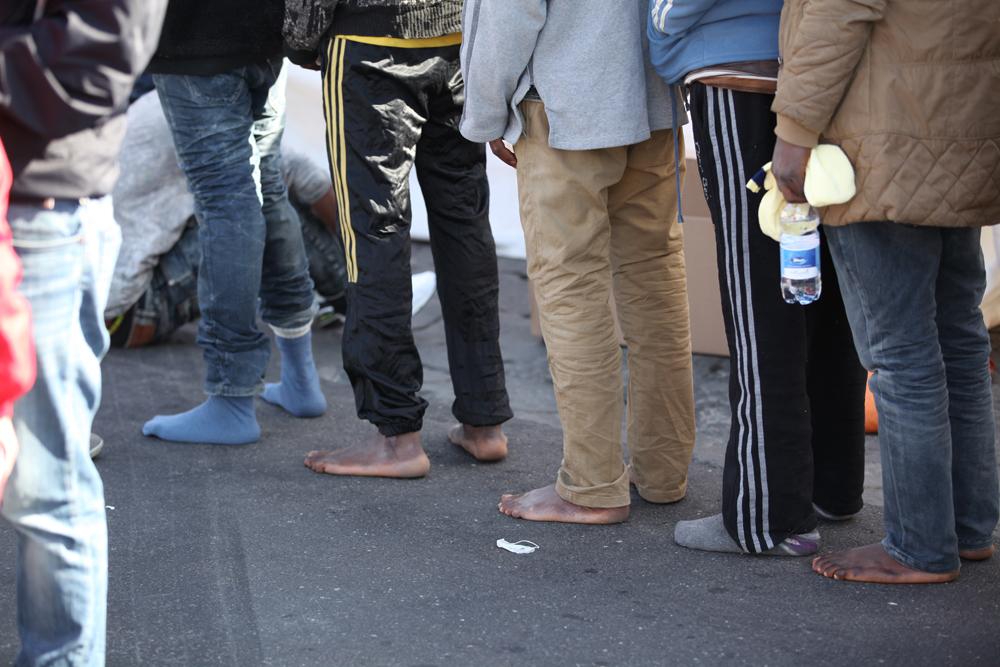Introduction to the issuance of work permits for Syrians in Jordan
The Jordan Compact agreement guarantees US$1.8 billion in low-interest loans to Jordan along with favourable trade terms with the EU in exchange for Jordan’s continued support of the Syrian refugees within its borders. In accordance with the Compact, Jordan has begun working toward the target of issuing work permits for 200,000 Syrians. Despite the lowering of regulatory and bureaucratic obstacles to Syrians’ access to the Jordanian labour market, the need for efficiencies along with pressures to meet global goals in the issuance of work permits for Syrians (IWPS)193a6f89e637 have opened up new opportunities for unfair, exploitative, and corrupt practices.
Corruption in Jordan and in the issuance of work permits for Syrians in Jordan
Defining ‘corruption’ broadly as an abuse of power for private gain and not merely as a breach of a formal duty allows better insight into the background and context of corruption in Jordan. In Jordan, kin-based forms of favourtism, often called wasta, represent a common form of corruption, and one that many see as undesirable but necessary. Within that context, IWPS has emerged as an outgrowth of the system of work permits for migrant workers generally, though there are key differences between the ways Syrians and other migrant workers are treated in Jordan. Thus it is important to distinguish between three types of corruption Syrians experience in labour market: 1) corruption Jordanians and non-nationals experience via wasta; 2) corruption that all migrant workers experience; and 3) the specific corruption that Syrian refugees report experiencing in Jordan. Furthermore, Syrians experience other barriers to inclusive labour integration in Jordan that are not corrupt per se.
Methods and findings
A month-long period of field research in April 2018, including six focus group discussions with Syrians and interviews with employers, government officials, and programme administrators at aid agencies and NGOs, yielded a clear picture of the challenges that IWPS faces. Syrians without connections, nepotism and other forms of favouritism find barriers to accessing job programmes, as do migrant-specific requirements for a work permit. Many labour sectors and professions are ‘closed’ to non-Jordanians, effectively shutting out some Syrian workers from the jobs for which they have been trained. The creation of both official and unofficial work permit ‘go-betweens,’ which span a range of legal and illegal forms have given rise to a culture of reliance on brokers and other middlemen who may exploit the system and divert benefits for private gain via corrupt practices. Syrians reported that a significant number of employers who hire them do so without work permits, while others hire Syrians (especially Syrian women) with permits primarily to take advantage of international aid benefits and not to provide them with meaningful labour. Ageism prevents many Syrian men from having access to physically demanding work.
While some of these corrupt practices actually serve some positive or necessary functions within IWPS, others are simply counter-productive. Some of these corrupt practices derive directly from the nature of particular labour markets in Jordan (and thus impact other migrant workers as well as Syrians), while others seem – especially to the Syrians – to come from a willingness to exploit their precarious, and often desperate, situation there. Other policies are perceived as unnecessarily manipulative, like the government’s tendency to time the announcement of fee waivers to artificially increase the number of permit applications for the sake of meeting international aid goals. Meanwhile, ageism, nepotism, and gender-based and nationality quotas have limited the effectiveness of IWPS efforts in certain areas. Nonetheless, the Jordanian government has proven adept at adjusting policies so as to meet the needs and functions of otherwise corrupt practices, even if only by coopting those practices and regularising them by making them legal aspects of the system.
Recommendations
The positive functions of nepotistic practices should be filled through more transparent and equitable means. Some recommendations require changing the character of the work permits themselves, such as making all work permits non-employer specific and removing the requirement of employer permission to leave employment. Others provide alternatives to brokers and middlemen, such as amplifying the role and function of job-matching services. The Jordanian government could also help by opening new labour sectors and professions to Syrians, including allowing for self-employment amongst Syrians. This would benefit, in particular, female refugees who struggle to secure meaningful work in the current system. Finally, given information gaps prevalent among both Syrian workers and Jordanian employers, campaigns to raise awareness about their rights and the impact of corruption in this area could have a considerable impact, as would measures to encourage reporting of workplace violations. Related to these considerations, it is also important that the political-economic activities of Jordanian public officials be more transparent, so that the public can see that those regulating the practices within which corruption occurs are not themselves corrupt.
Given the singular nature of the Jordan Compact, it remains an open question whether and how such programmes like the IWPS could be exported to other countries. Studying the IWPS in Jordan provides unique insights into many of the problems – and some of the possible solutions – that implementing such a programme elsewhere might entail.
- The issuance of work permits for Syrians is what we refer to with IWPS.
